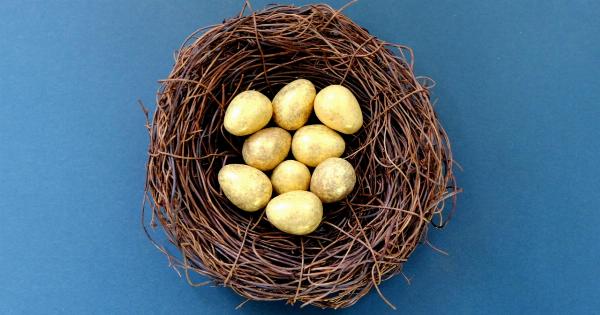Easter is a time of celebration and family gatherings. It’s also a time of indulging in delicious treats and splurging on festive meals. However, the excess of food and sugary treats can lead to unhealthy habits and sabotage your health.
The good news is that you don’t have to sacrifice the flavors and traditions. With a little planning and conscious eating, you can enjoy Easter while nourishing your body. Here are some tips on what to eat and what not to eat during Easter:.
Eat: Vegetables and Fruits
Vegetables and fruits are the cornerstone of a healthy diet, and they should be part of your Easter meals.
They provide your body with essential nutrients, fiber, and antioxidants that promote good health, boost your immune system, and prevent chronic diseases.
You can incorporate vegetables and fruits into your Easter meals in many ways. You can serve colorful salads, roasted vegetables, or grilled fruits as side dishes. You can also make a fruit salad or smoothie as a healthy dessert option.
Don’t eat: Processed and Packaged Foods
Processed and packaged foods are high in sodium, unhealthy fats, and added sugars. They offer little nutritional value and can damage your health in the long run.
Unfortunately, Easter is a time when processed and packaged foods are widespread, from chocolate eggs to ready-made snacks and drinks.
To avoid processed and packaged foods, you should read the labels carefully and choose whole-food options. You can make your own Easter treats using natural and healthy ingredients such as dark chocolate, nuts, and dried fruits.
You can also prepare your own dips, spreads, and dressings using fresh herbs, olive oil, and lemon juice.
Eat: Lean Protein
Protein is an essential macronutrient that keeps you full, satisfied, and supports muscle growth and repair. During Easter, you can include lean protein sources such as turkey, fish, eggs, or tofu in your meals.
These options are lower in saturated fats and cholesterol than red meat and can help you meet your daily protein needs.
When cooking with protein, you should avoid frying, breading, or using heavy sauces that can add calories and unhealthy fats. Instead, opt for grilling, baking, or steaming methods that preserve the nutrient content and flavor of the food.
Don’t eat: Excessive Sugar
Sugar is a significant contributor to many health problems, including obesity, type 2 diabetes, and heart disease.
Unfortunately, Easter is notorious for offering an overwhelming amount of sweets, candies, and pastries that are high in sugar and calories. Therefore, you should limit your sugar intake during this holiday and opt for healthier versions of treats.
If you crave something sweet, you can choose dark chocolate, which contains less sugar and higher cocoa content. Fruit is also a natural source of sugar that can satisfy your sweet tooth in a healthy way.
You can also make your own healthy desserts using natural sweeteners such as honey, maple syrup, or stevia.
Eat: Whole Grains
Whole grains are a nutrient-rich food that contains fiber, vitamins, and minerals. They are beneficial for the digestive system, heart health, and weight management.
On Easter, you can substitute refined carbohydrates such as white bread, pasta, and rice with whole-grain options such as brown rice, quinoa, or whole-wheat bread.
You can incorporate whole grains into your Easter meals by making salads, casseroles, stuffing, or pilafs. You can also serve whole-grain crackers or bread as a healthy appetizer.
Don’t eat: Fried Foods
Fried foods are a common sight during Easter, but they are also one of the unhealthiest choices you can make. They are high in calories, unhealthy fats, and can lead to inflammation, heart disease, and other health problems.
Therefore, you should avoid fried foods during Easter and opt for healthier cooking methods.
If you want to indulge in something crispy and delicious, you can make your own oven-baked or air-fried version of your favorite recipe.
For example, you can make baked sweet potato fries, crispy baked chicken, or roasted vegetables with a crunchy texture.
Eat: Hydrating Beverages
Hydrating beverages are essential for the body to function correctly, especially during warm seasons when you lose more fluids. During Easter, you can choose hydrating drinks that support your health and taste great.
Some examples are water, herbal tea, green tea, or coconut water.
You can also make your own flavored water by adding slices of lemon, cucumber, mint, or berries to your water bottle. This creates a delicious and refreshing drink that hydrates your body and promotes detoxification.
Don’t eat: Excessive Alcohol
Alcohol is a calorie-dense and dehydrating beverage that can lead to poor health outcomes if consumed in excess. Easter often involves alcohol consumption, but you should keep moderation in mind to avoid negative effects.
If you want to enjoy a drink, you can opt for a small glass of red wine, which contains antioxidants and is associated with health benefits.
You can also choose low-calorie and low-sugar alcoholic beverages such as light beer, wine spritzers, or simple cocktails.
Conclusion
Easter nutrition doesn’t have to be a challenging task. By being mindful of your food choices, you can enjoy your favorite Easter foods while promoting your health.
Remember to choose whole foods, limit sugar and unhealthy fats, and focus on hydrating beverages. Small changes can lead to significant improvements in your well-being and make your Easter holiday even more enjoyable.































